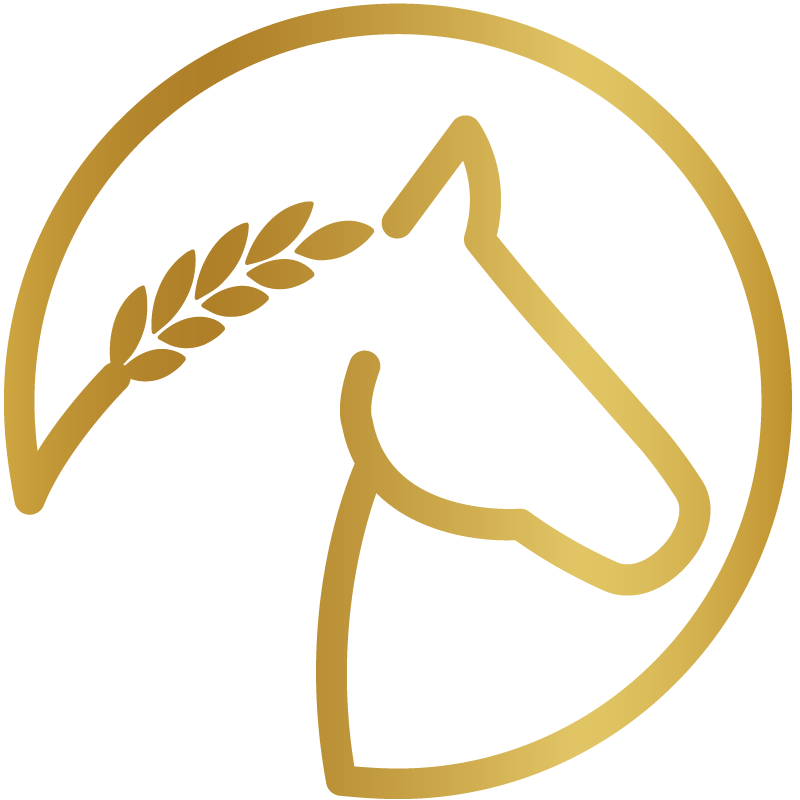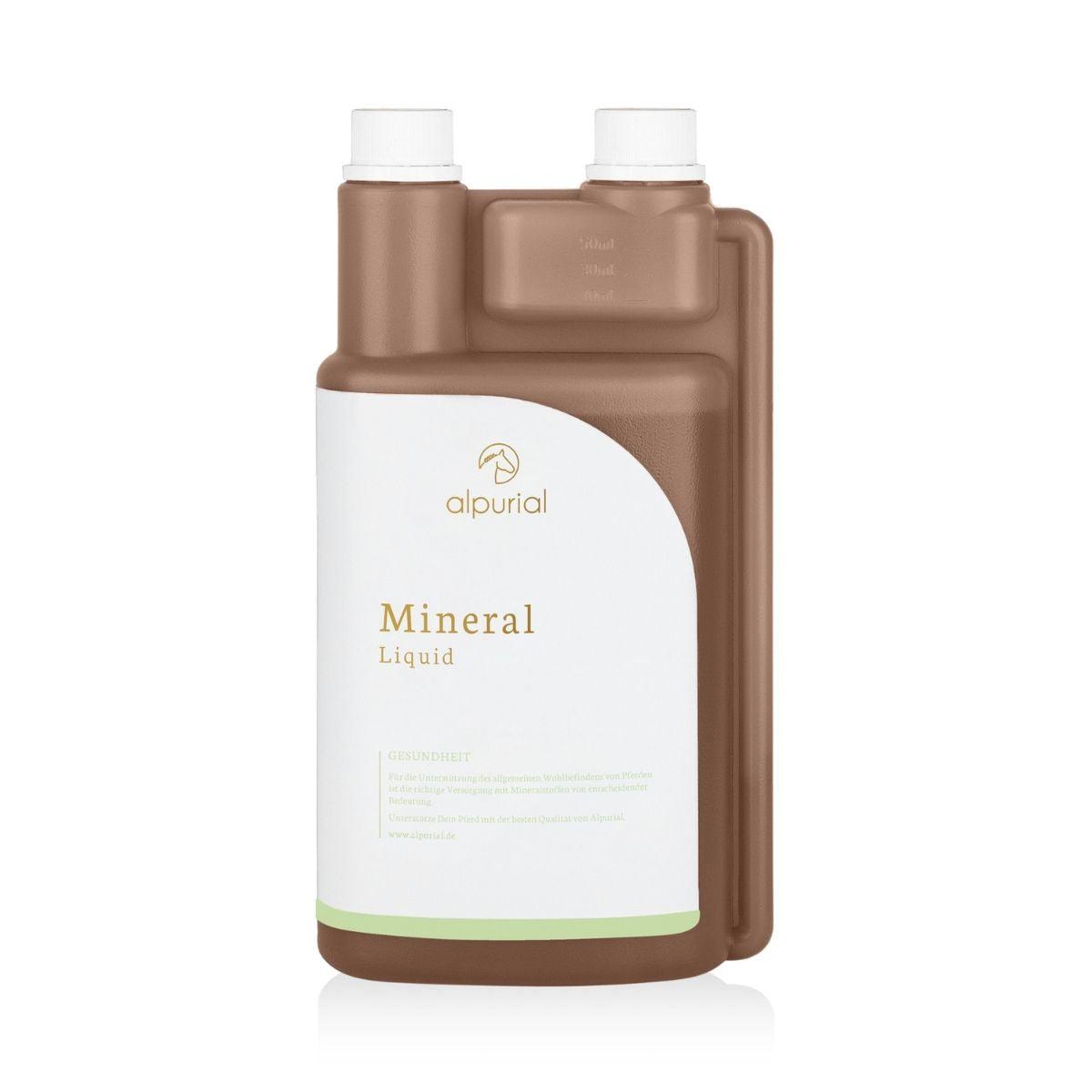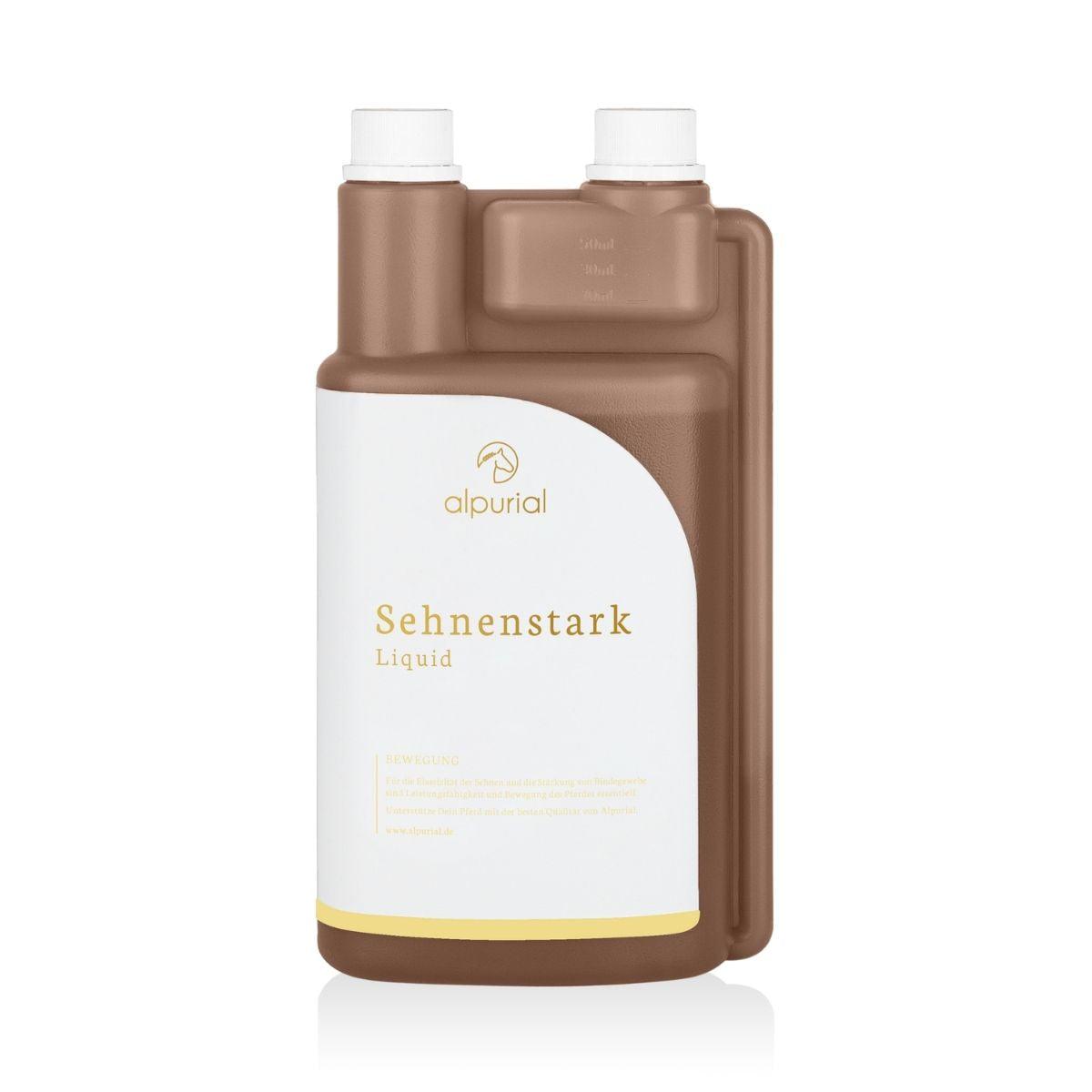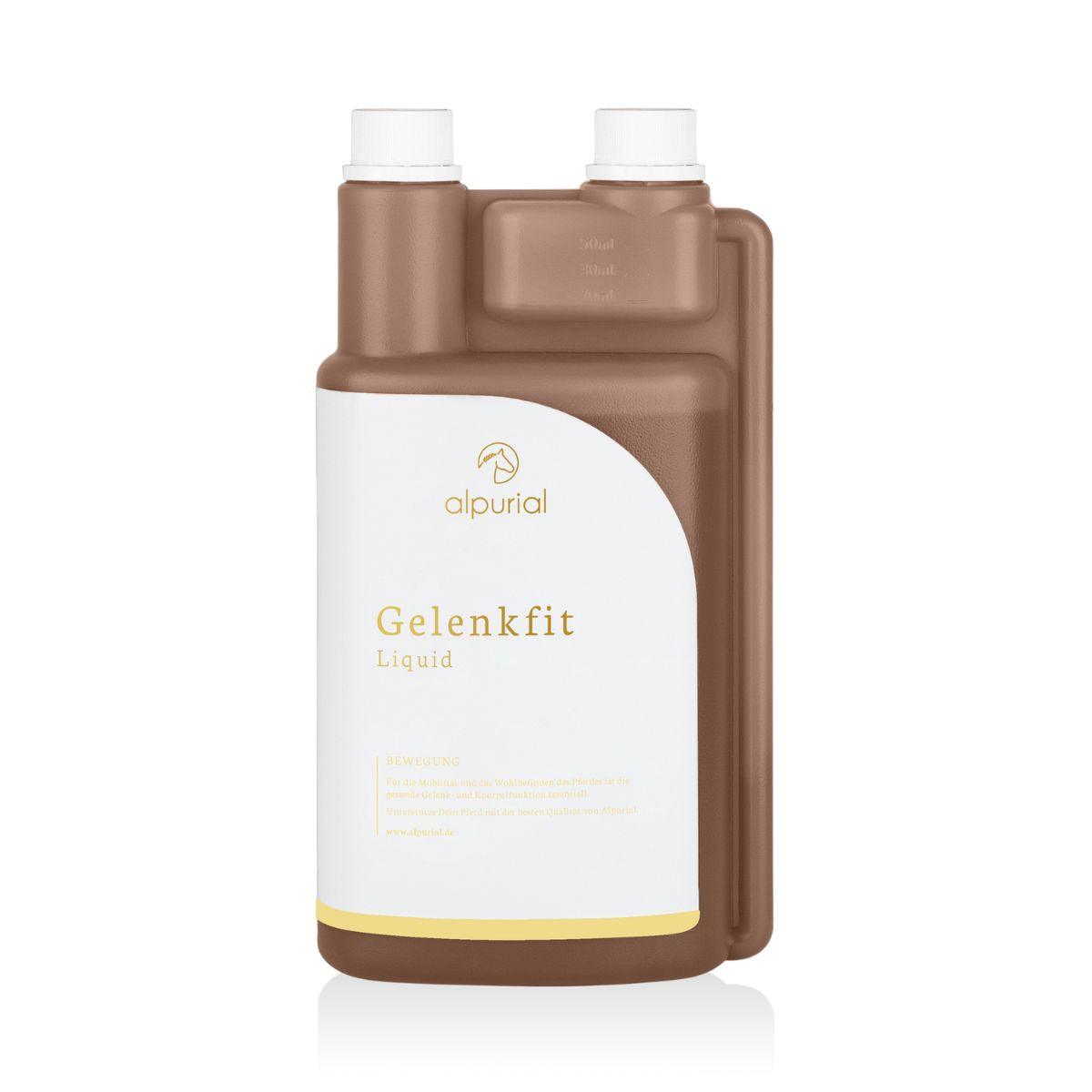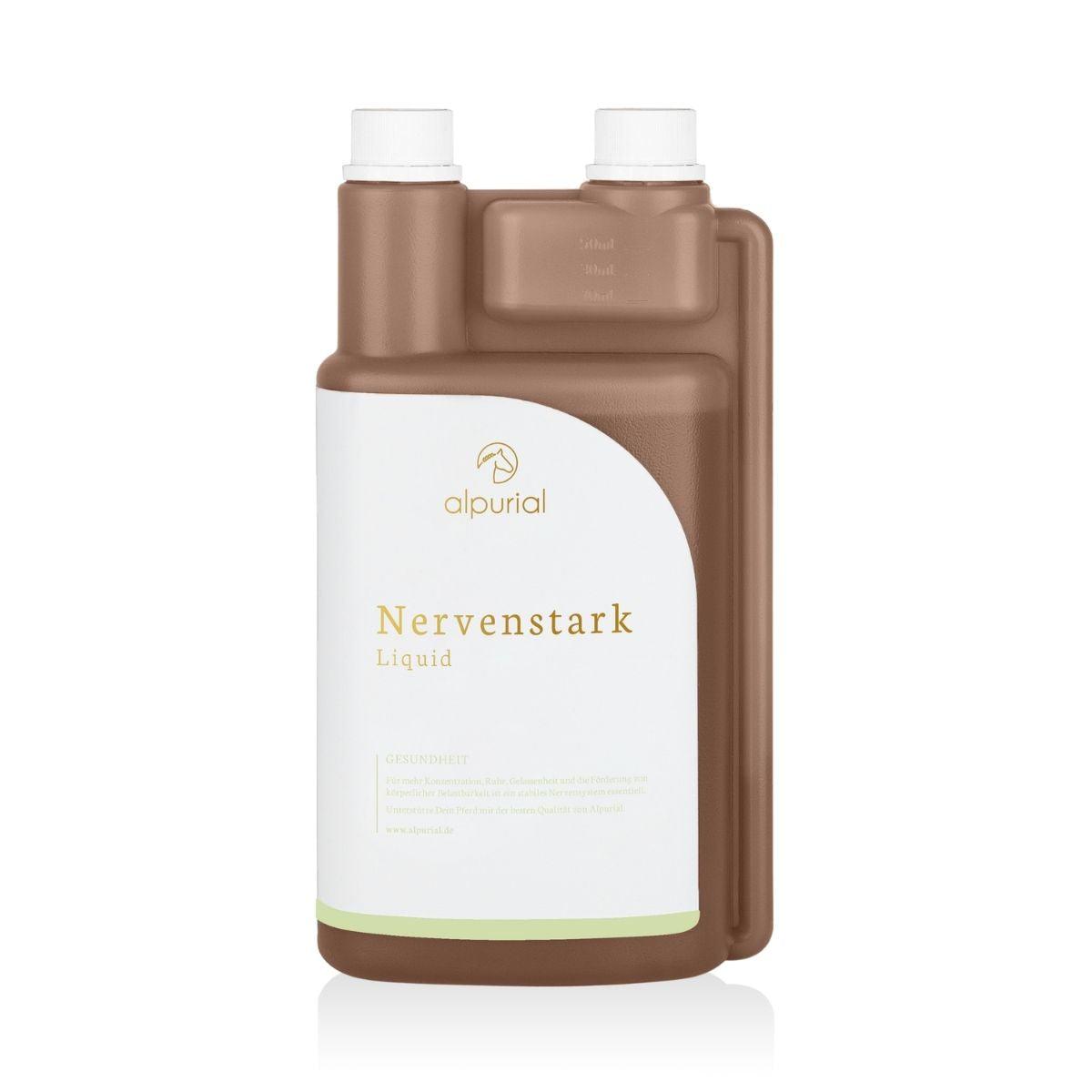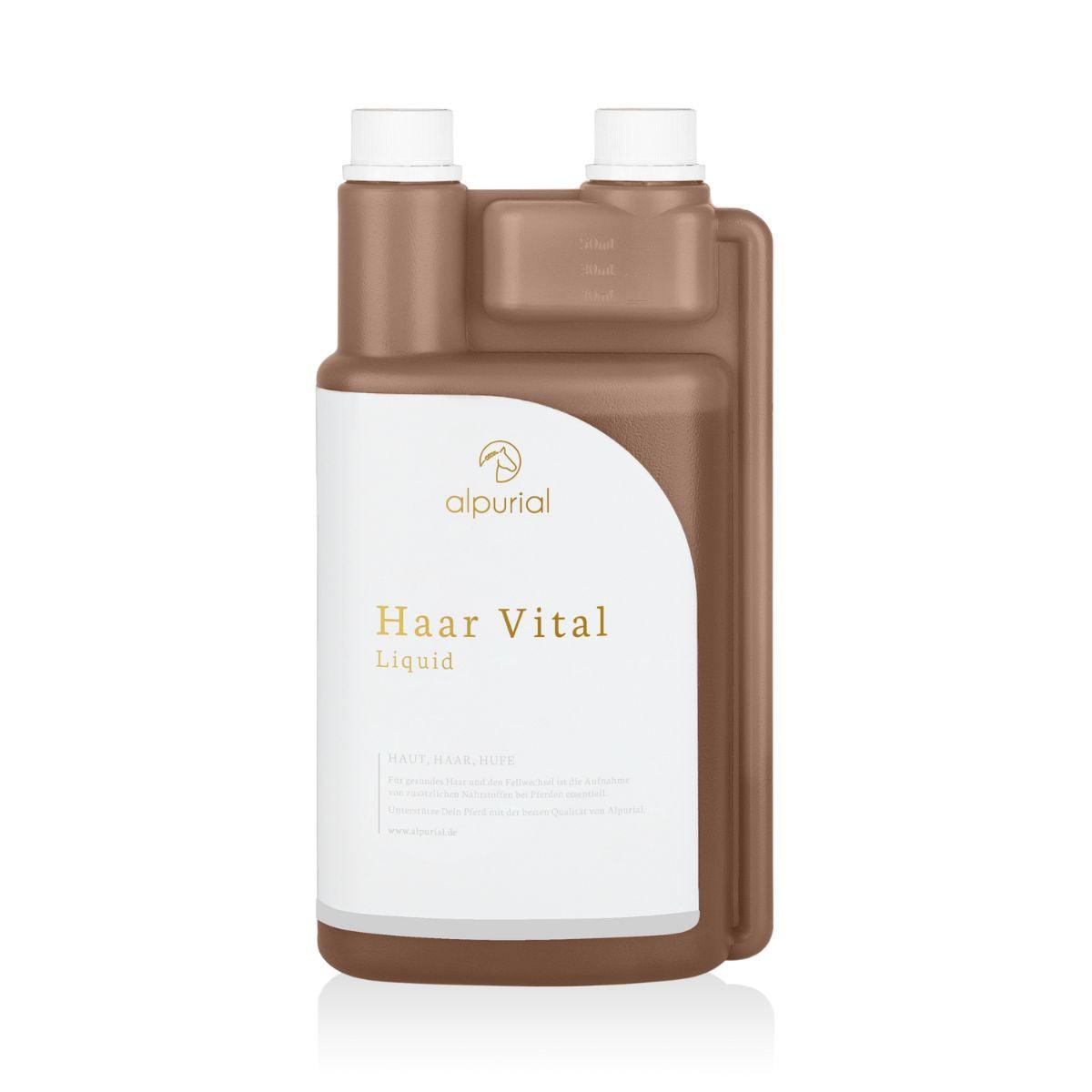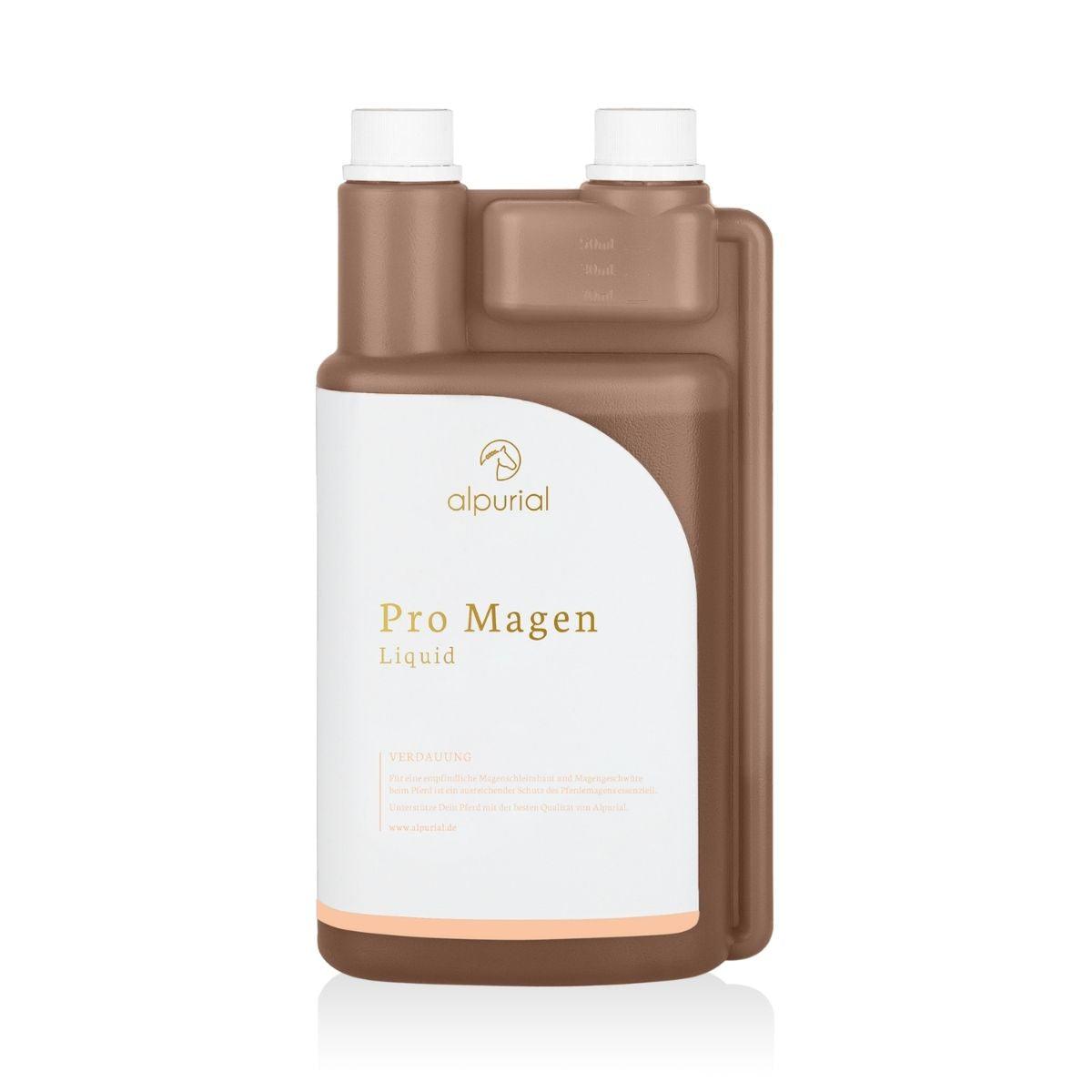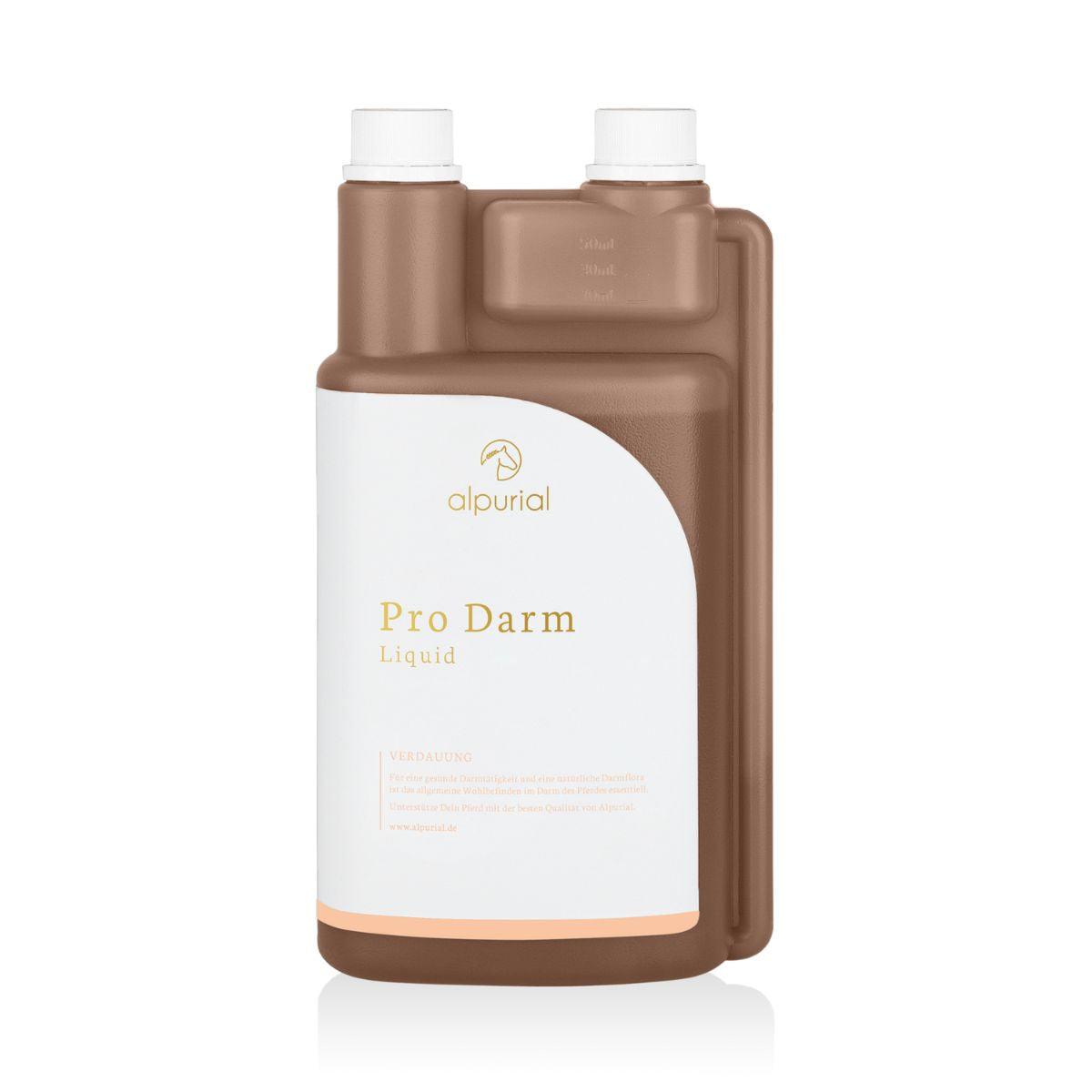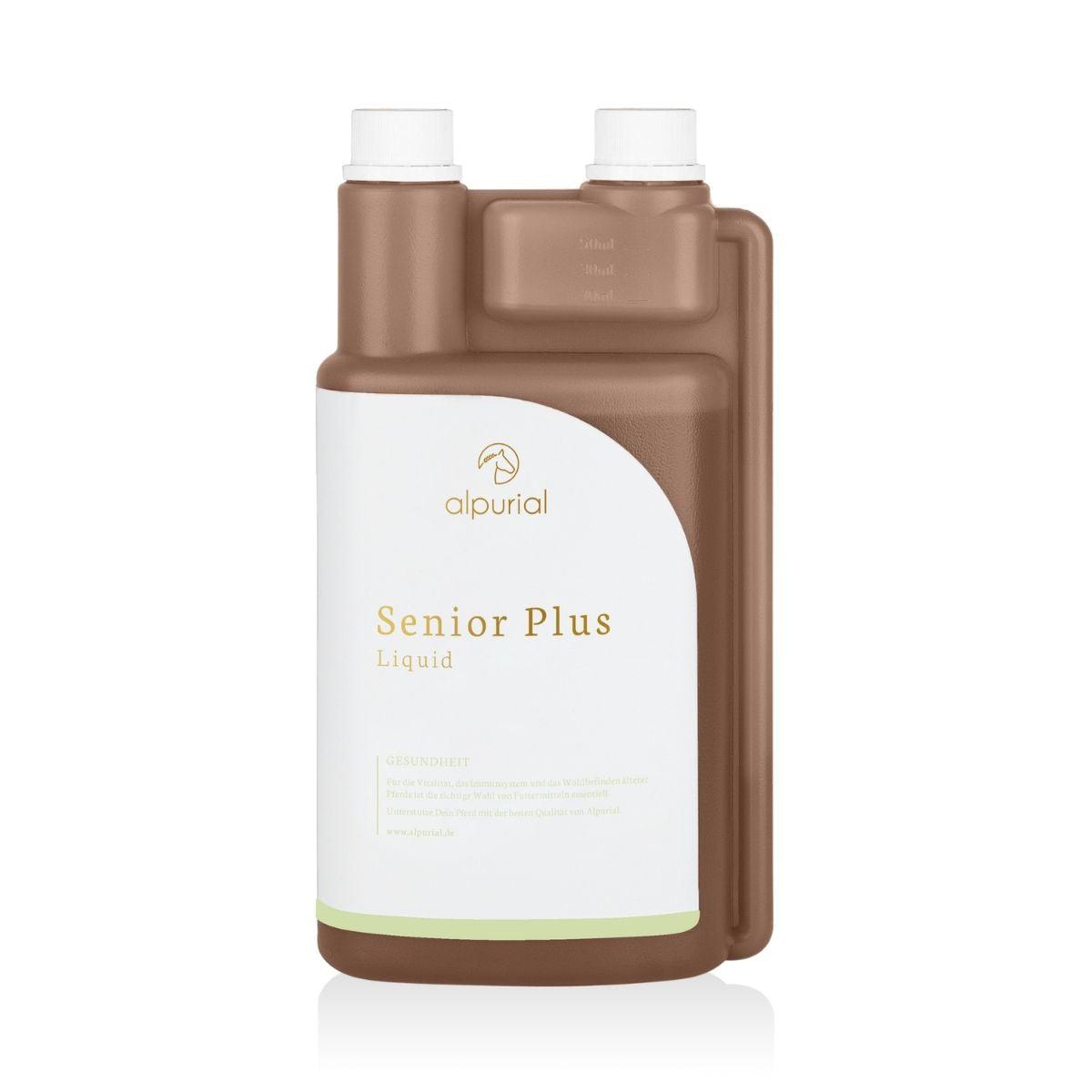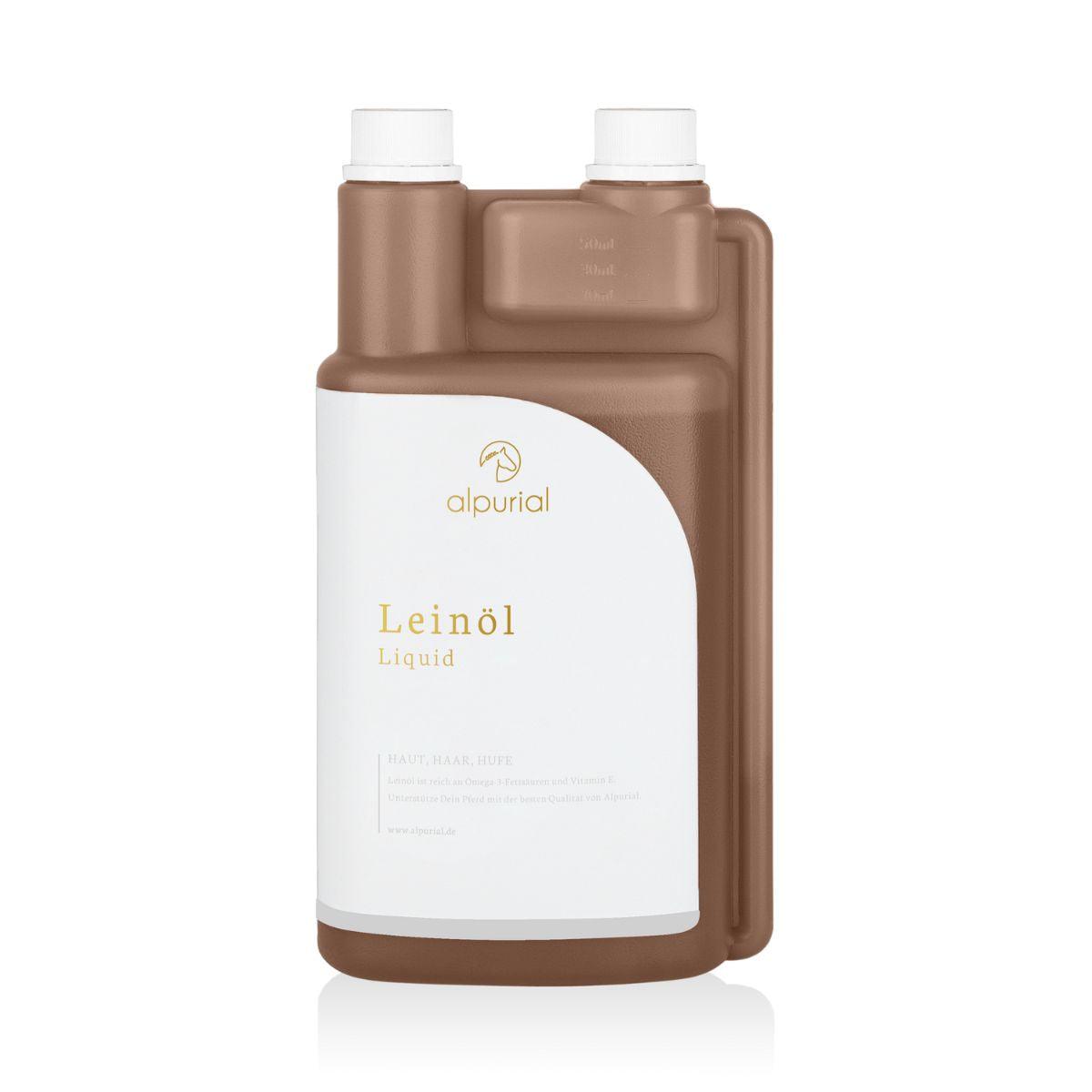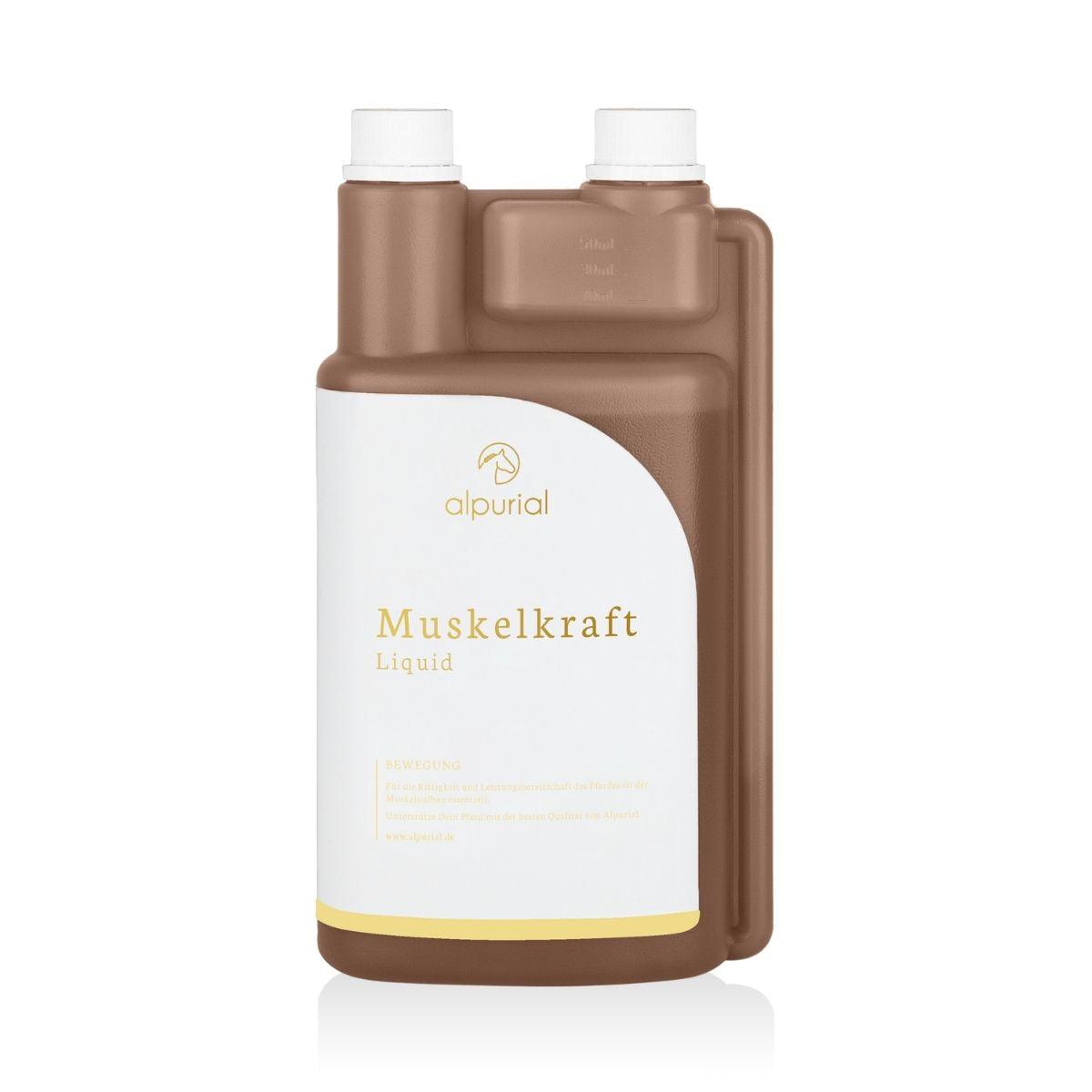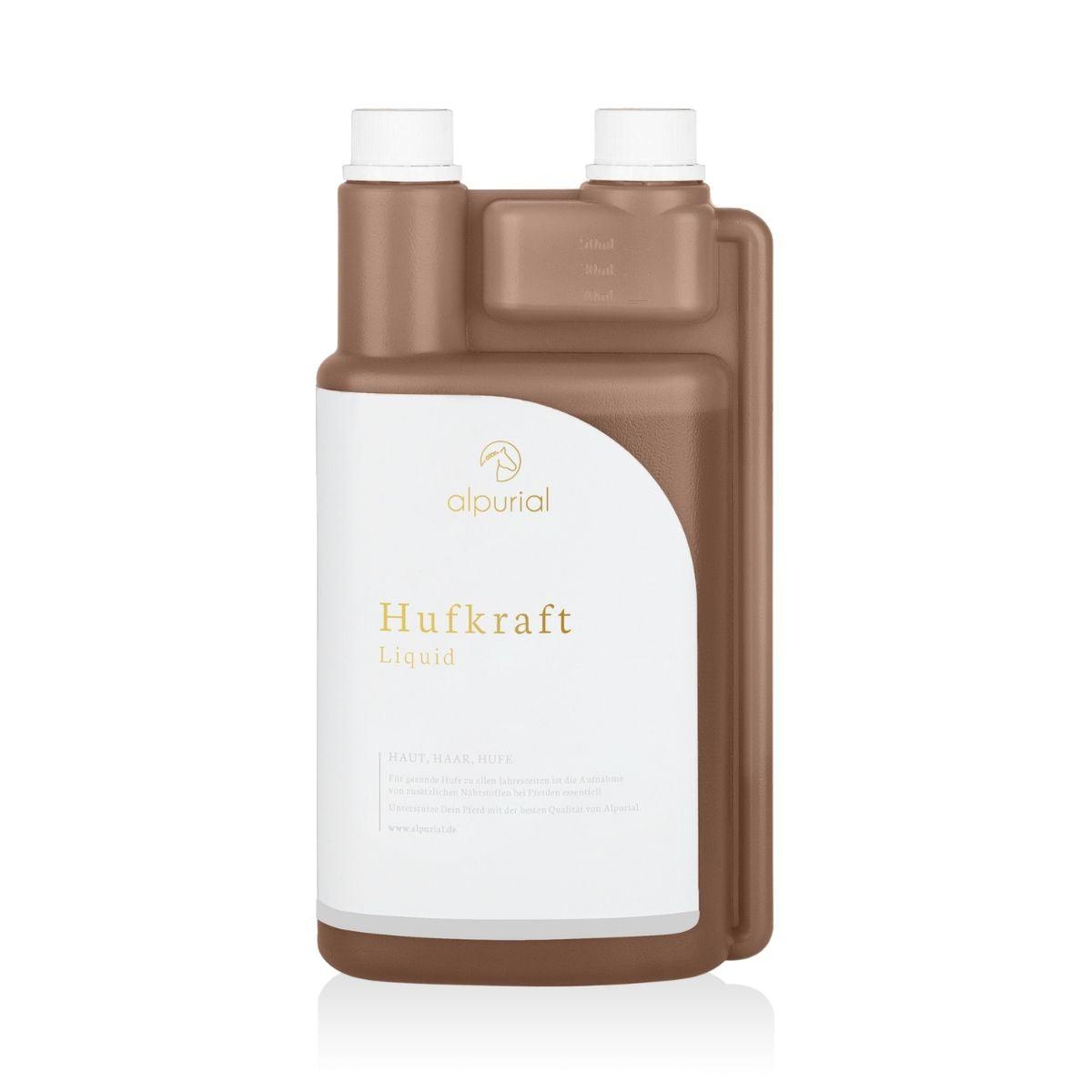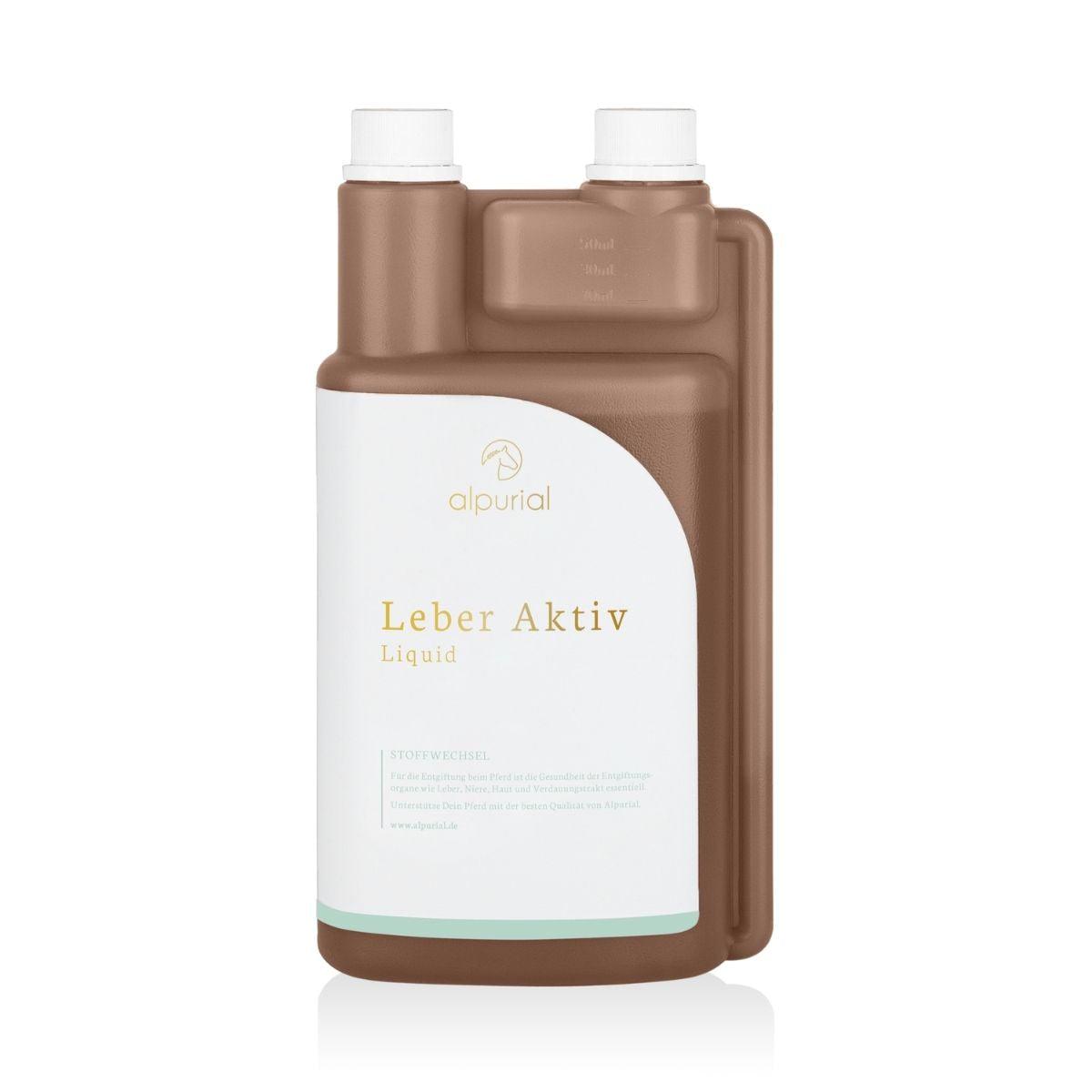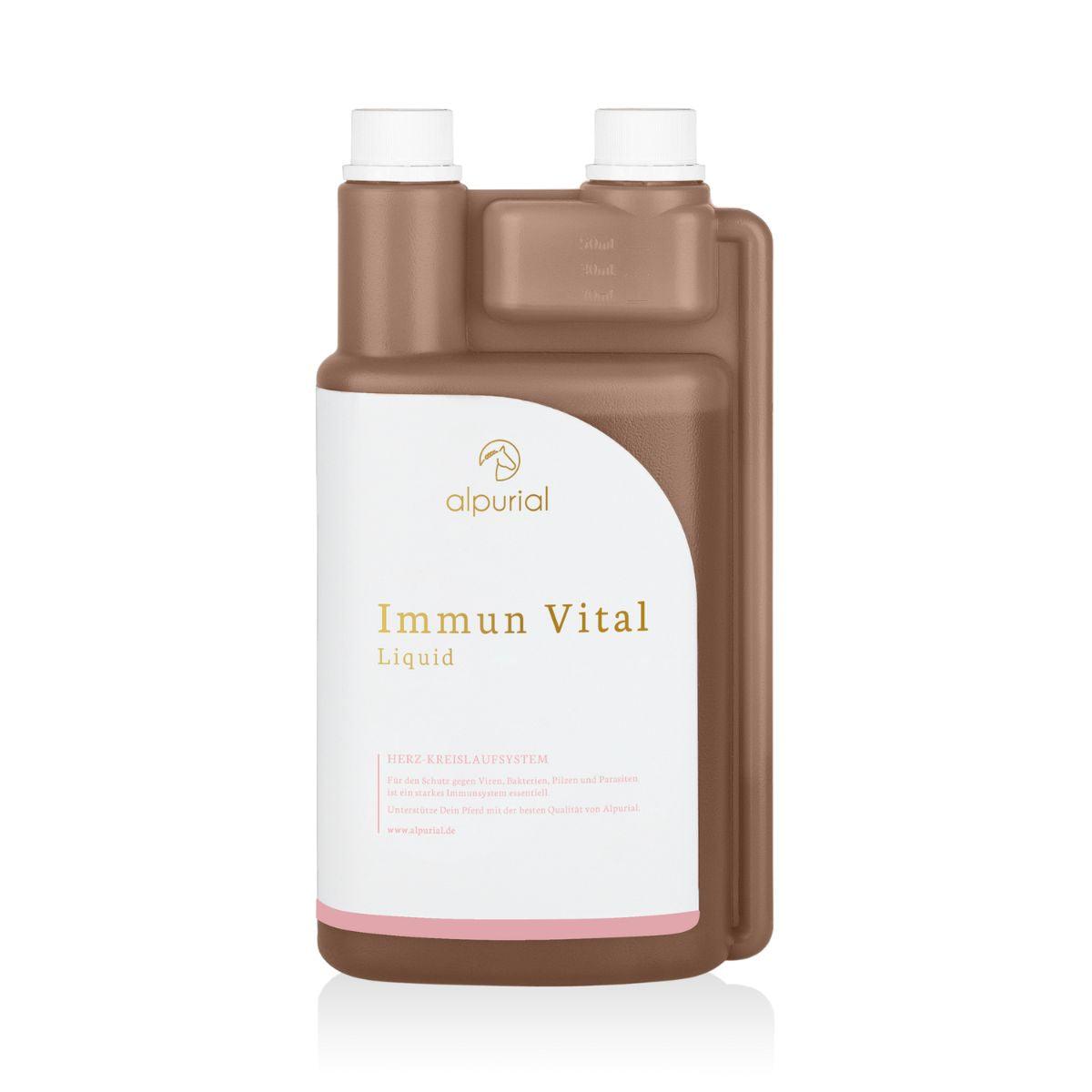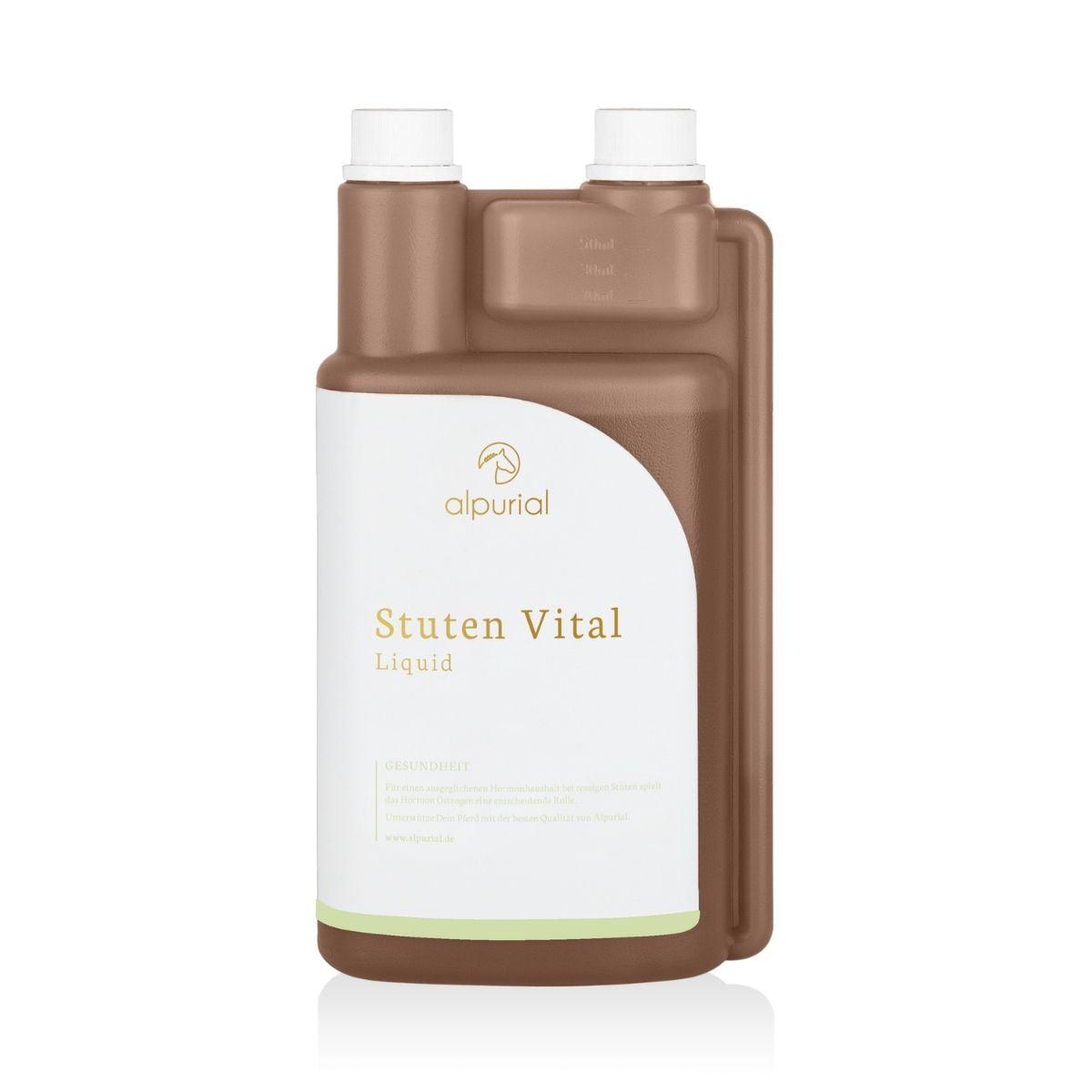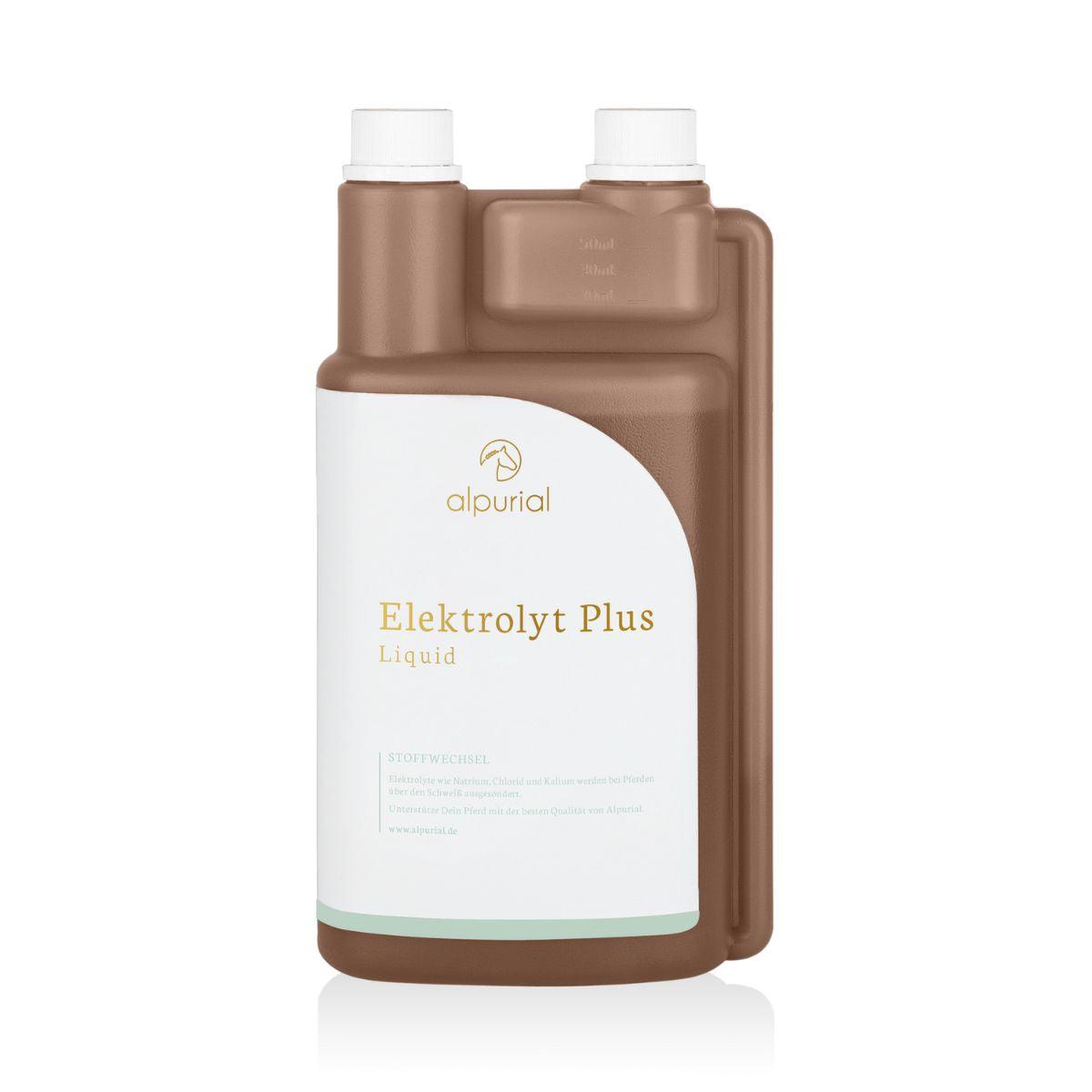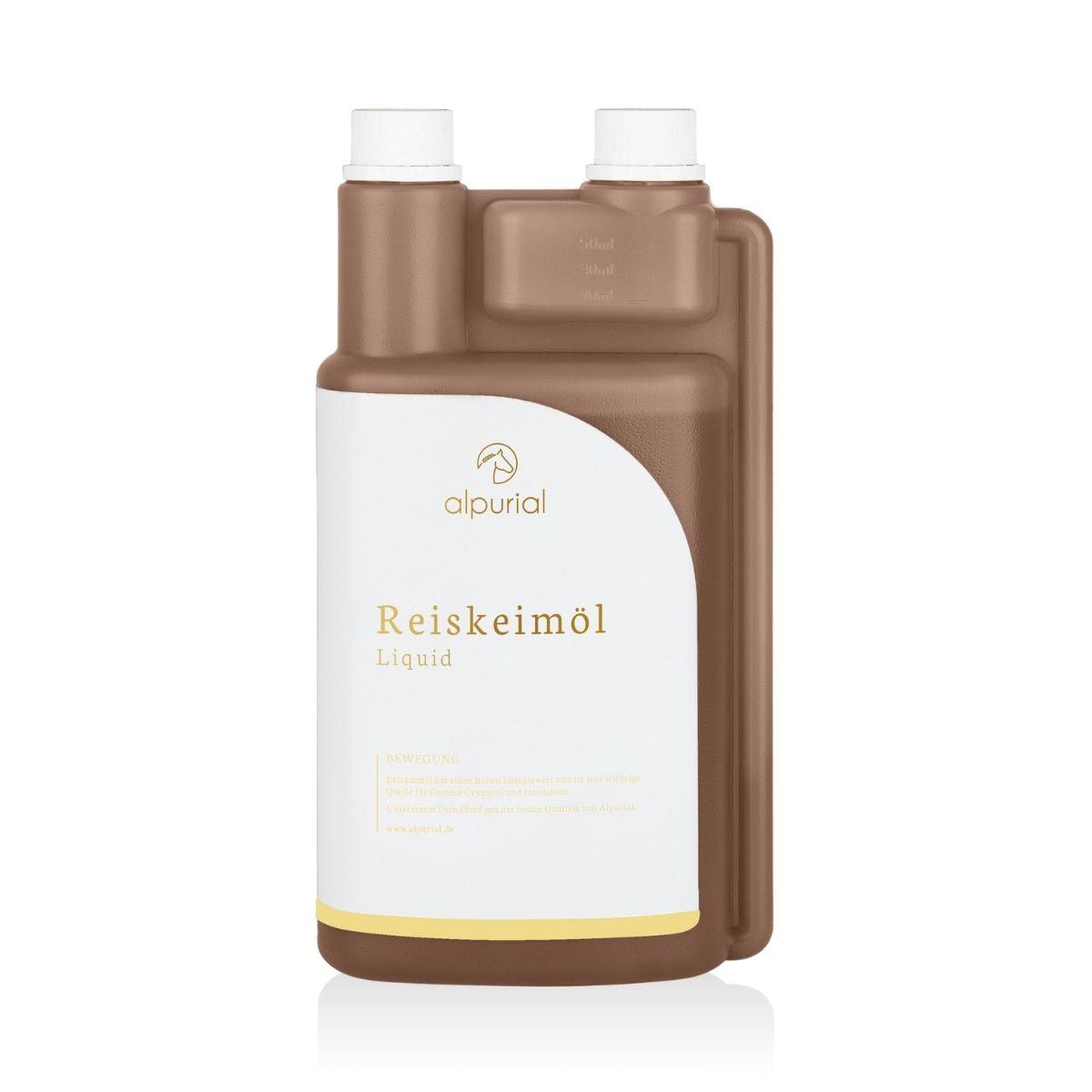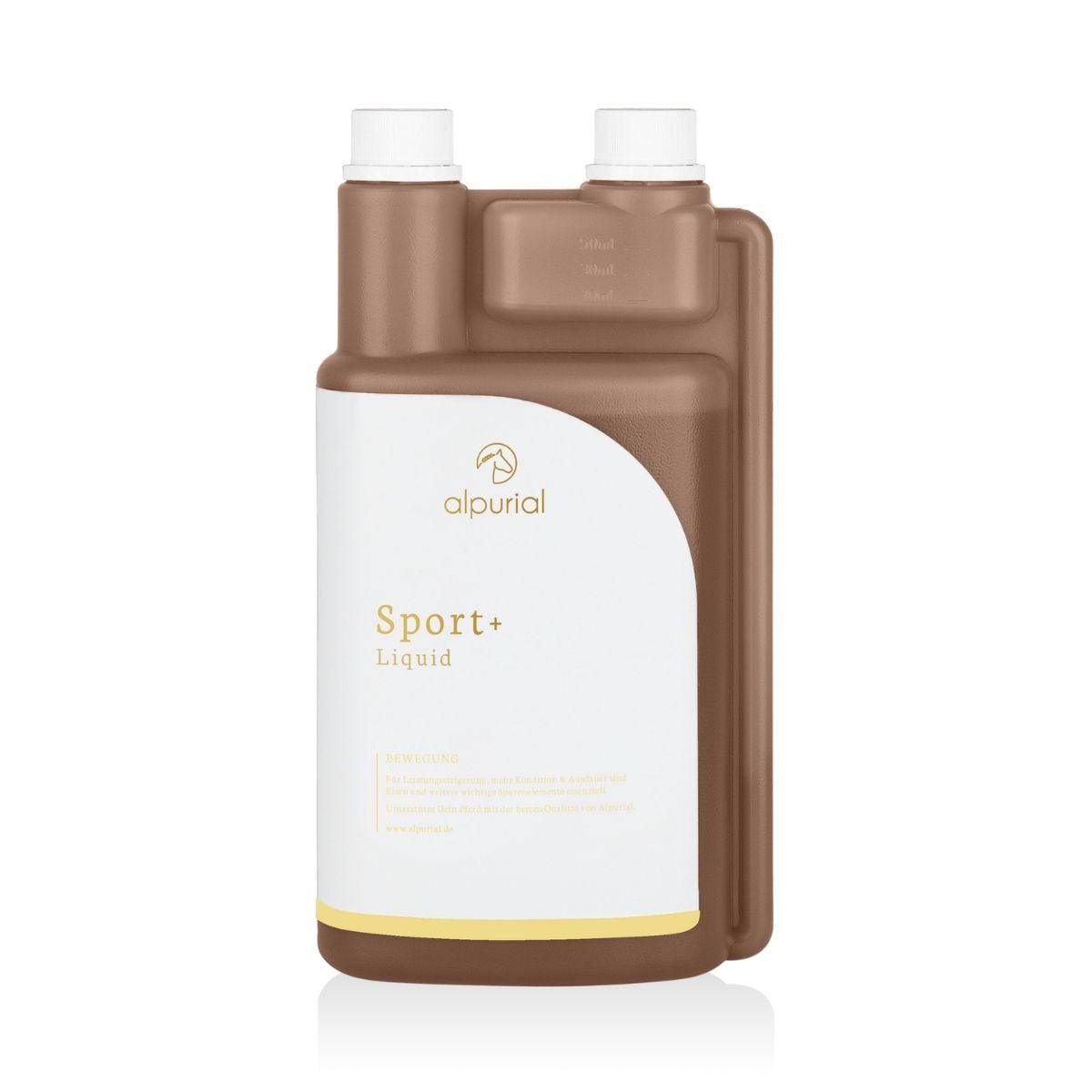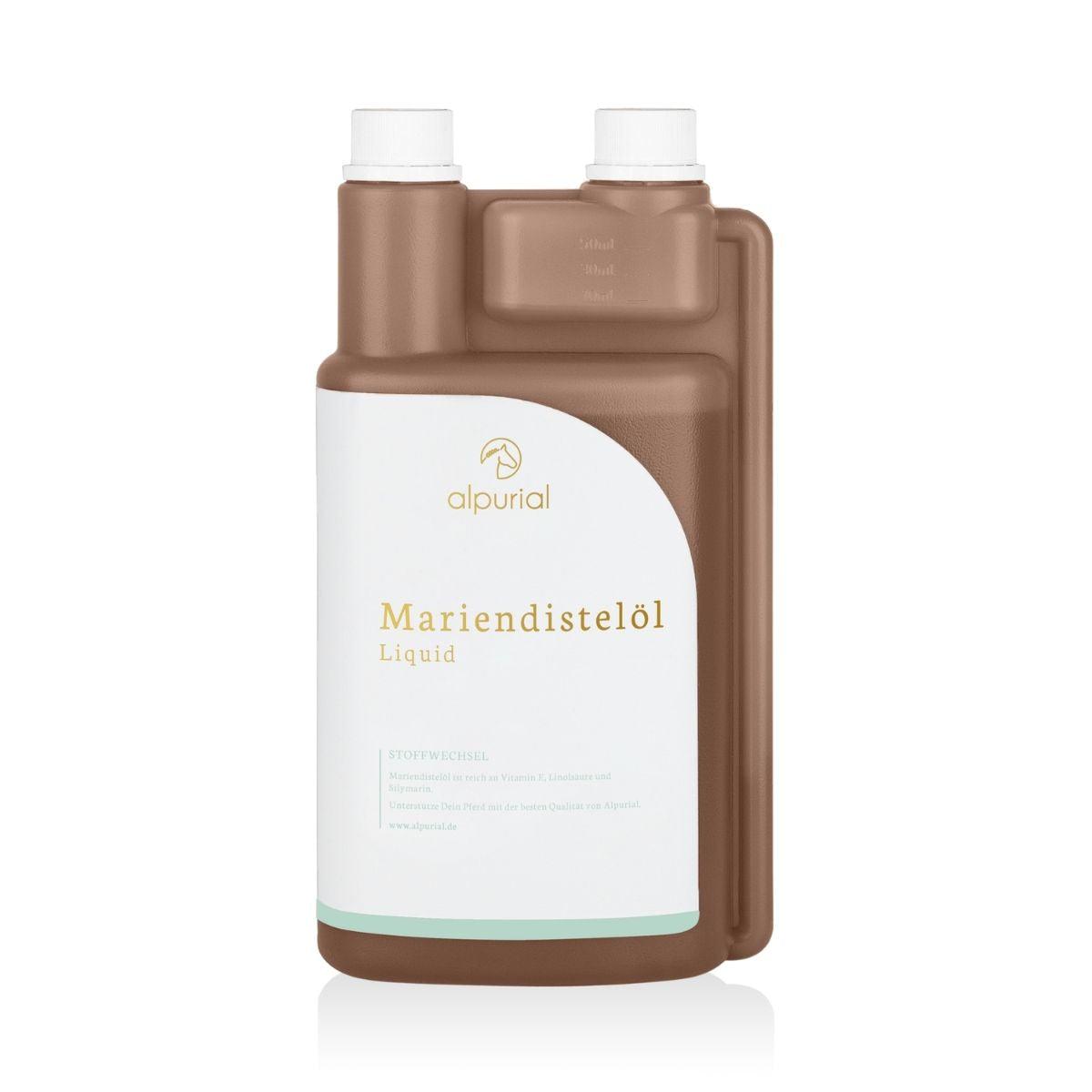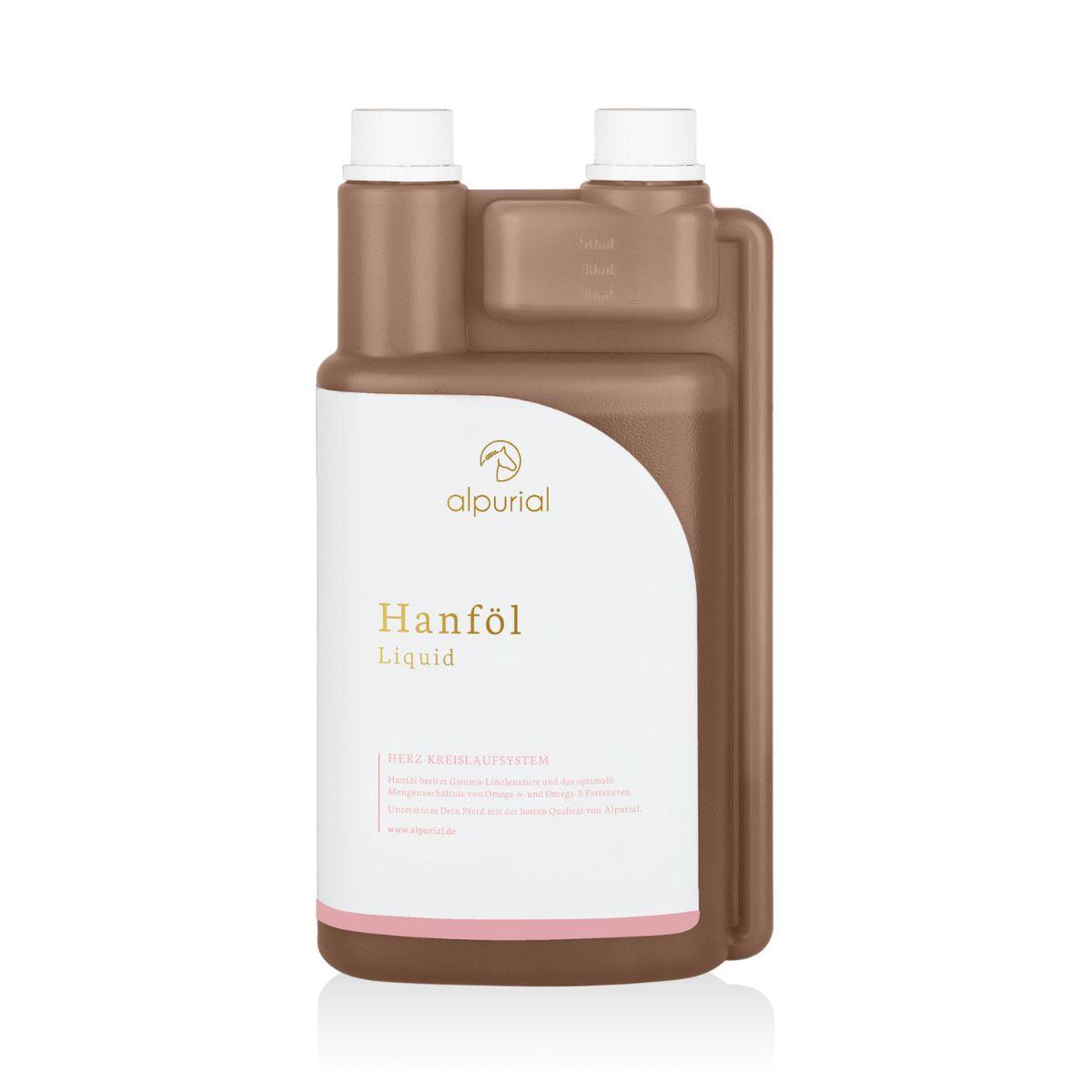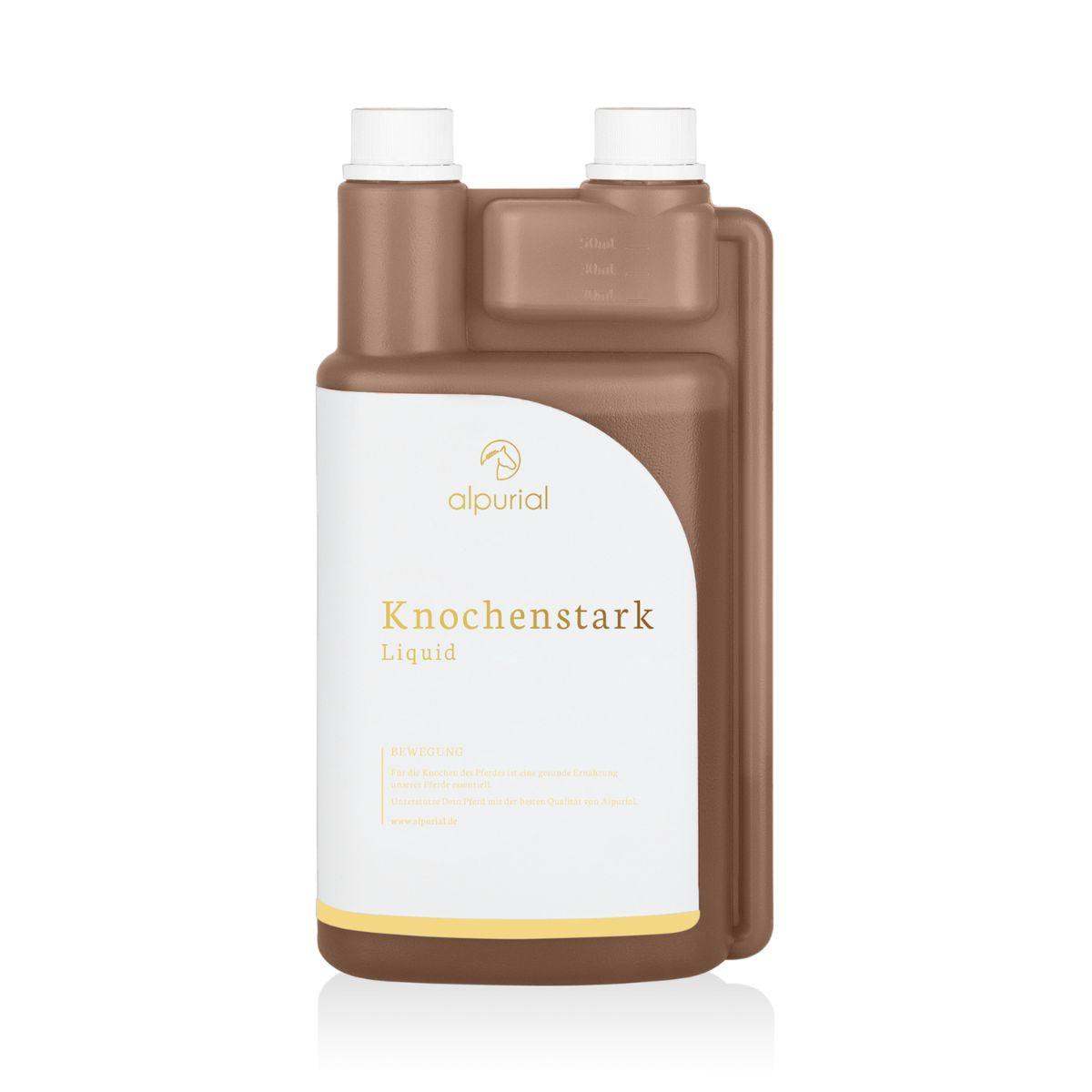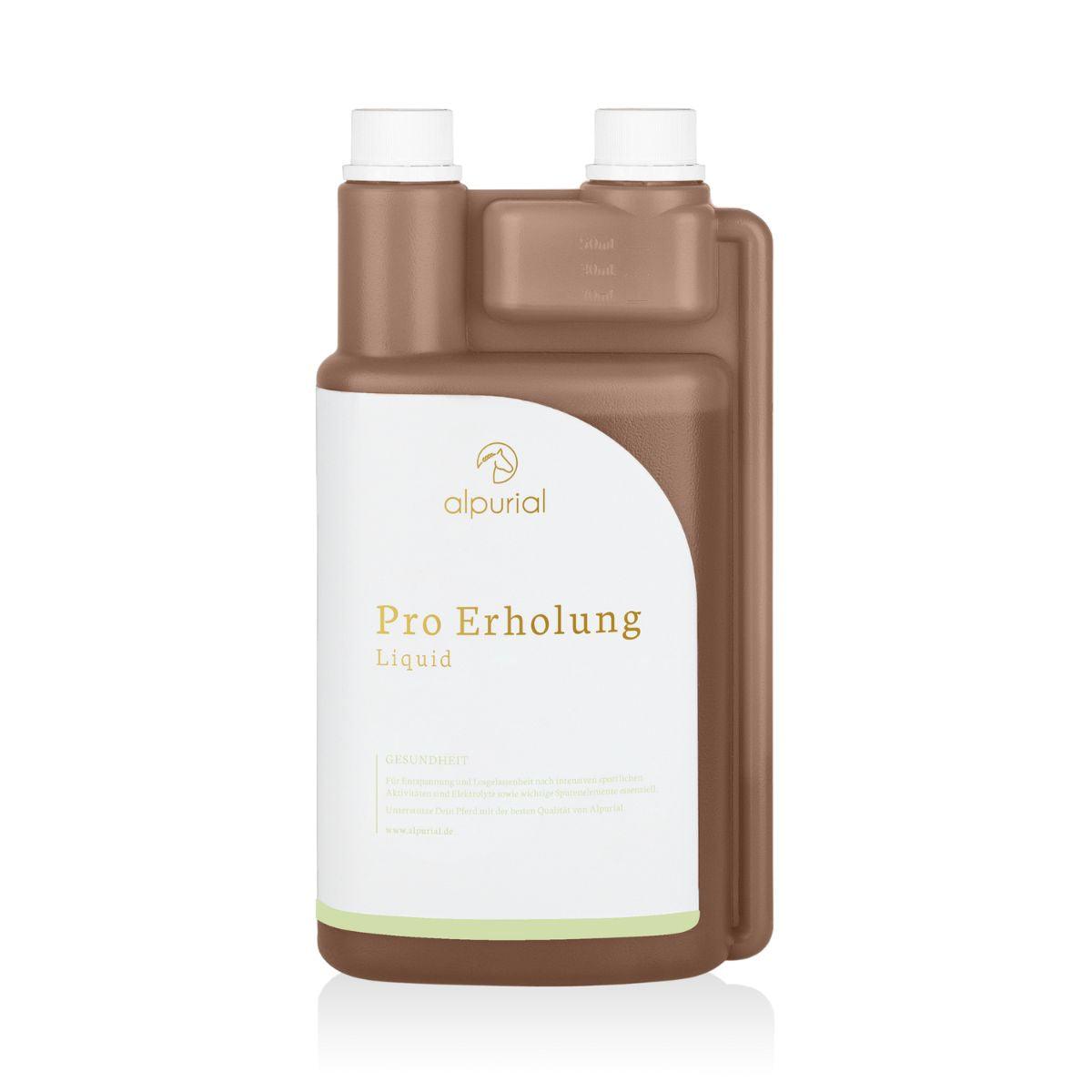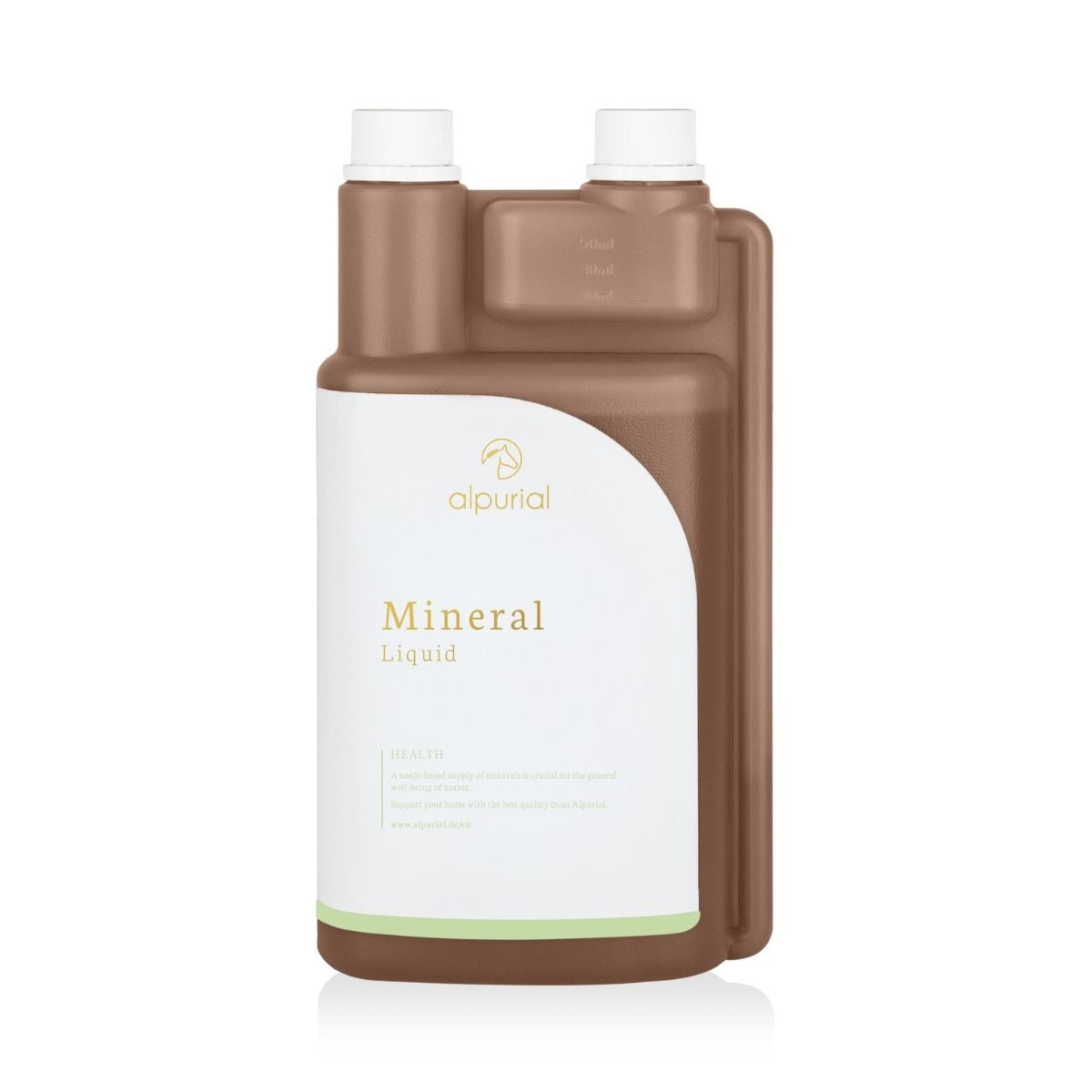
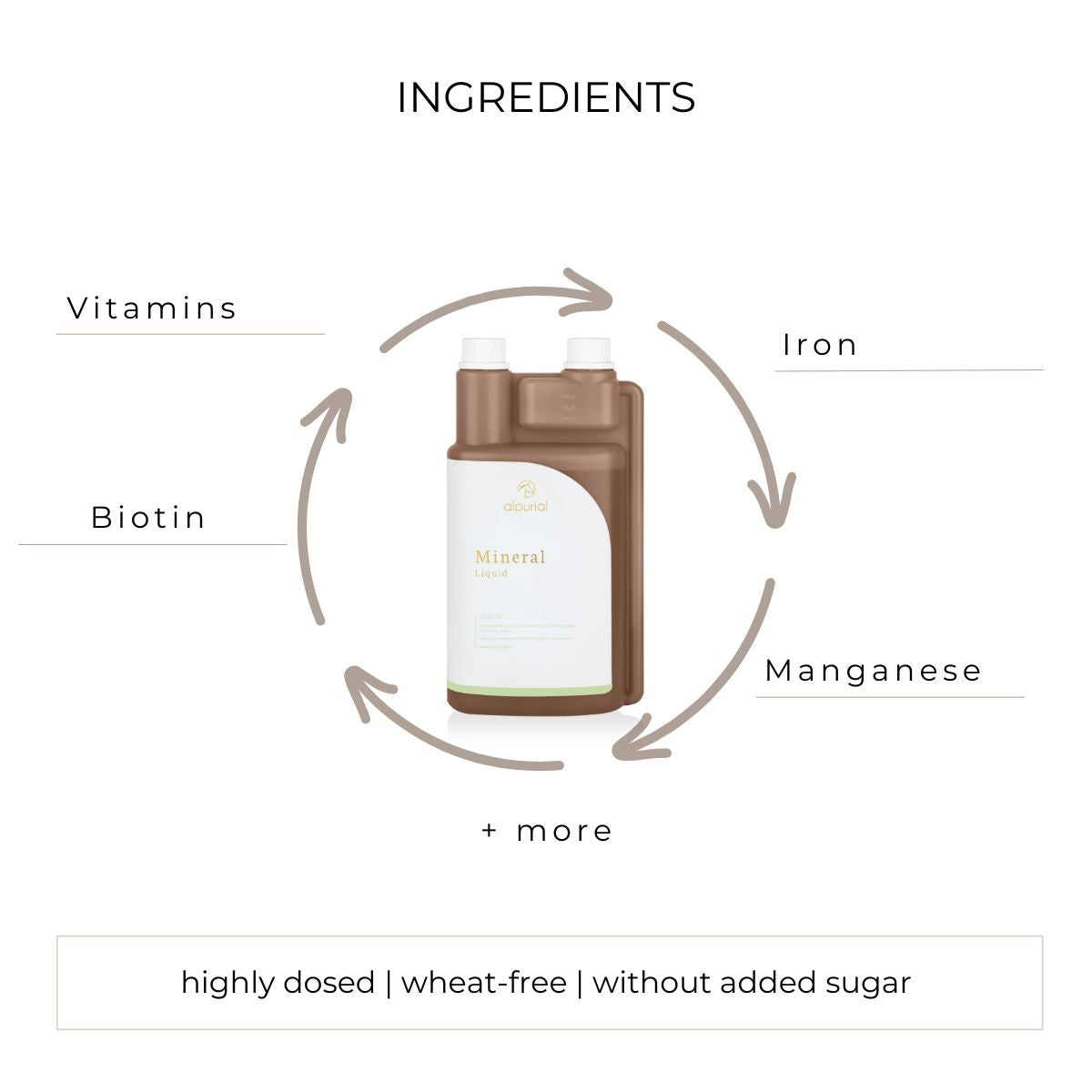
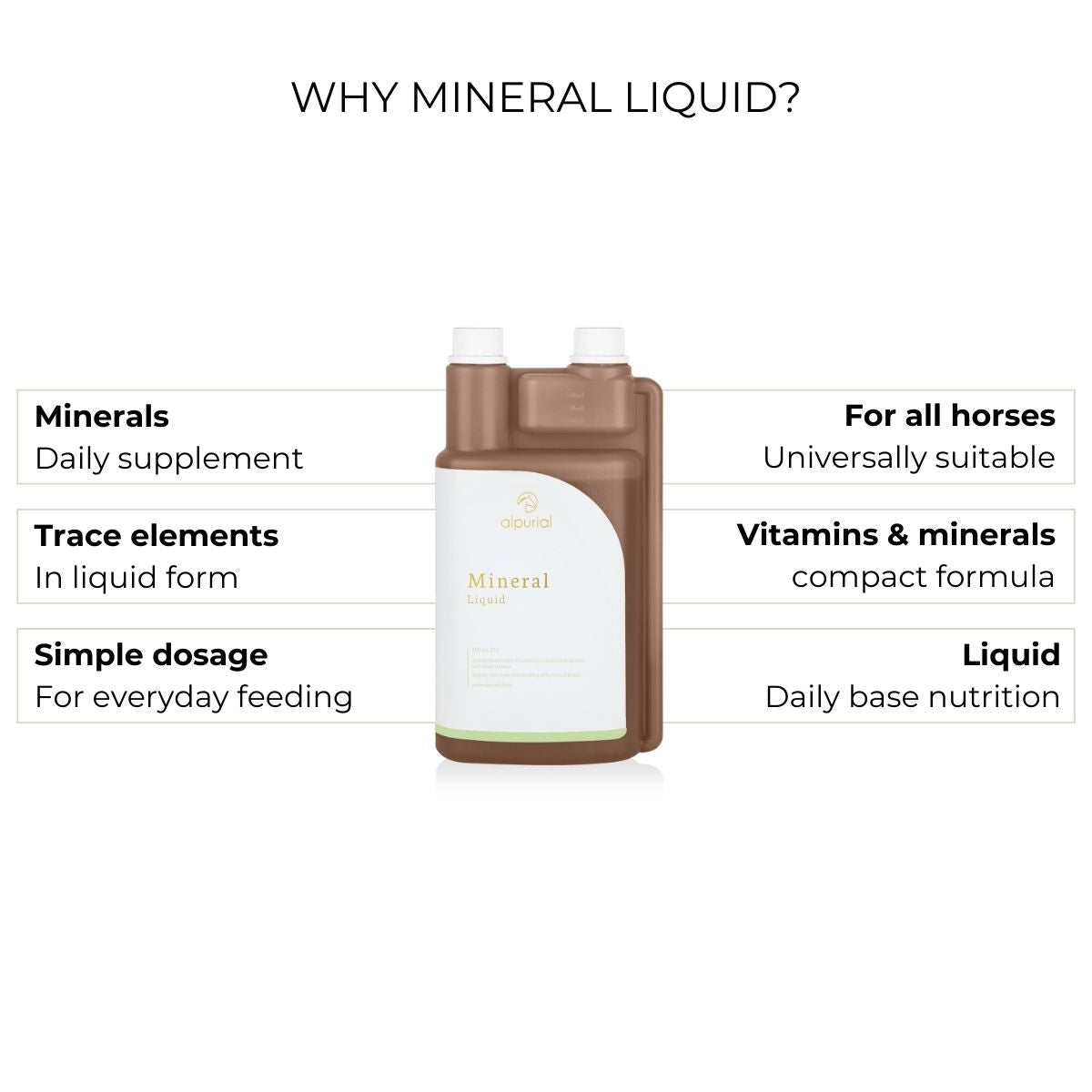
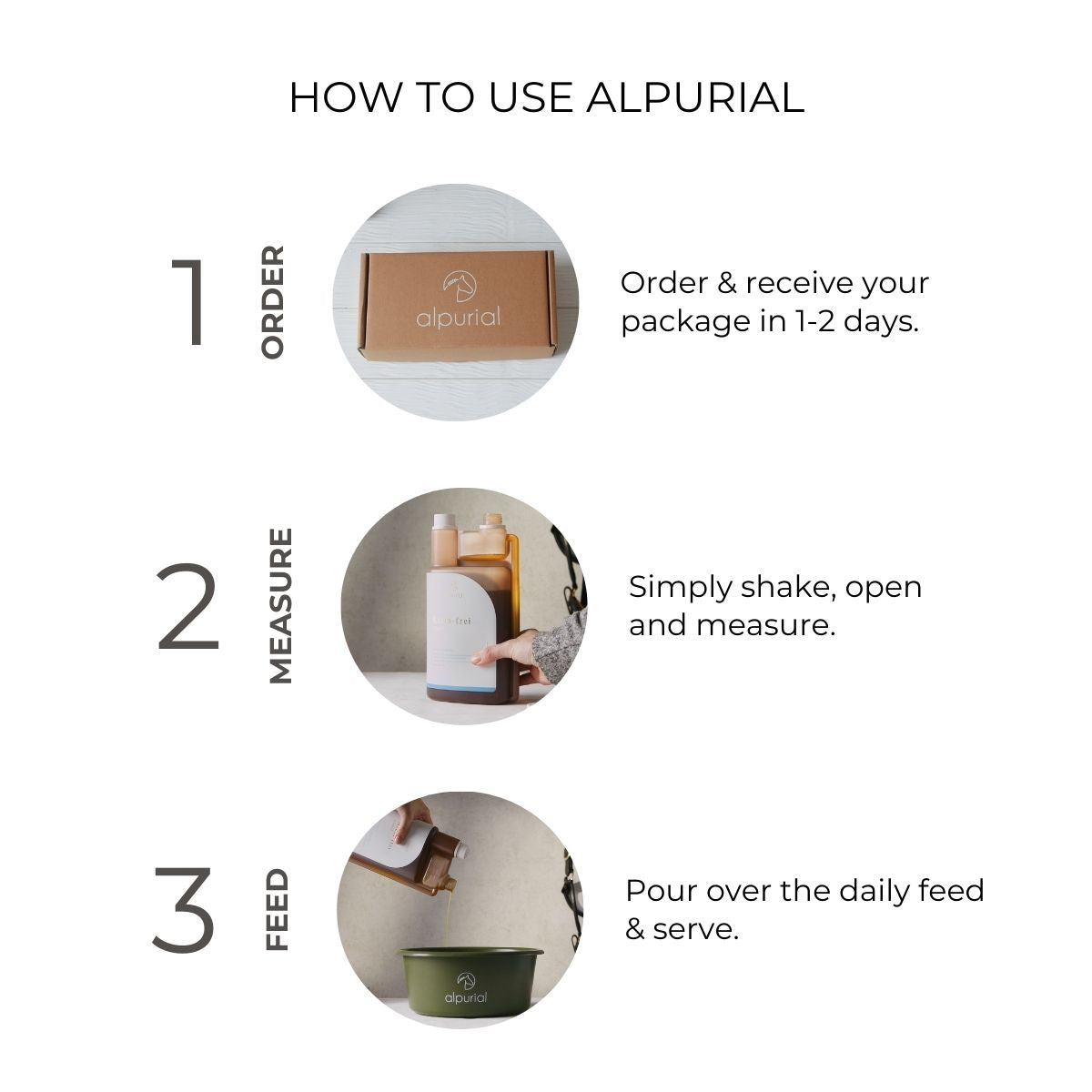
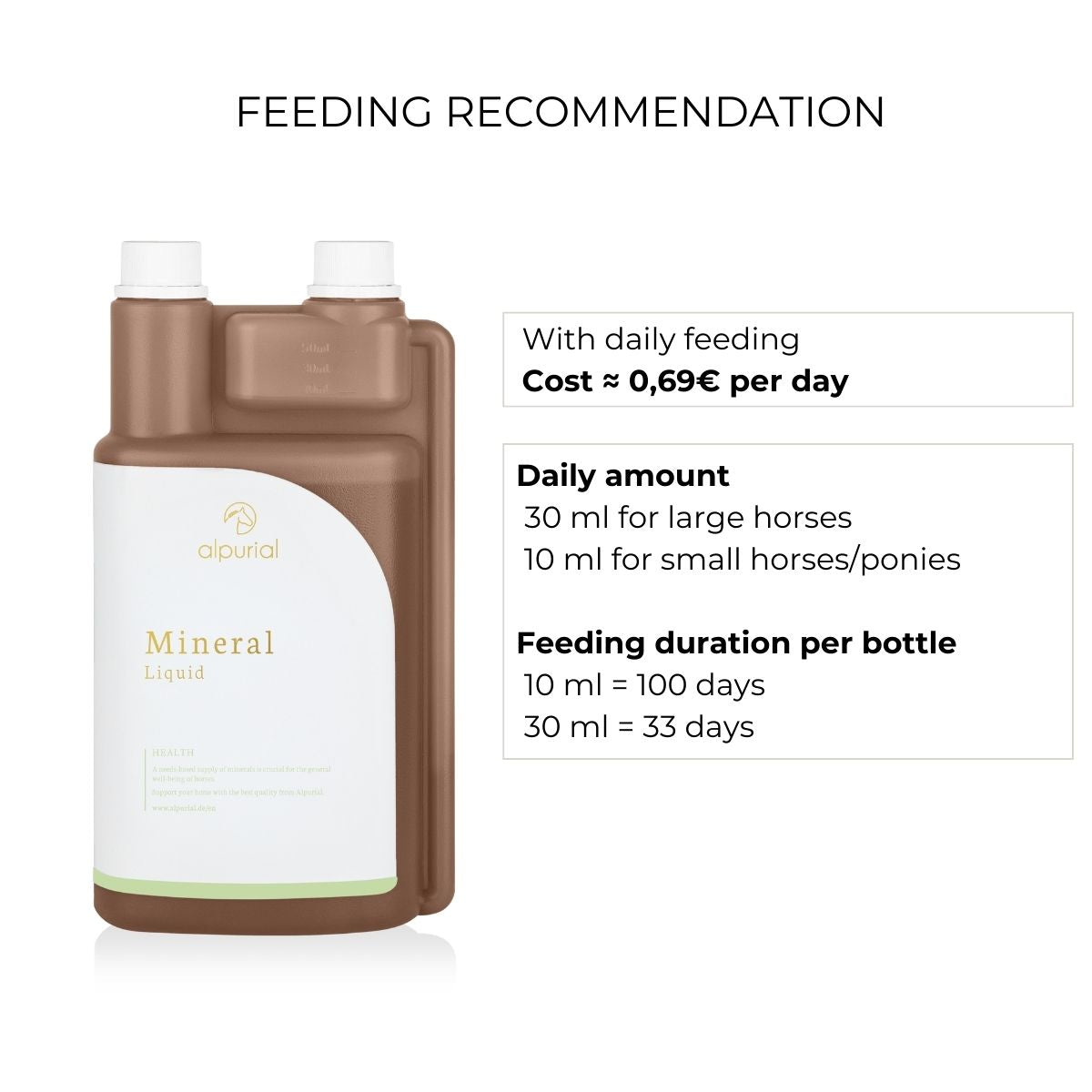
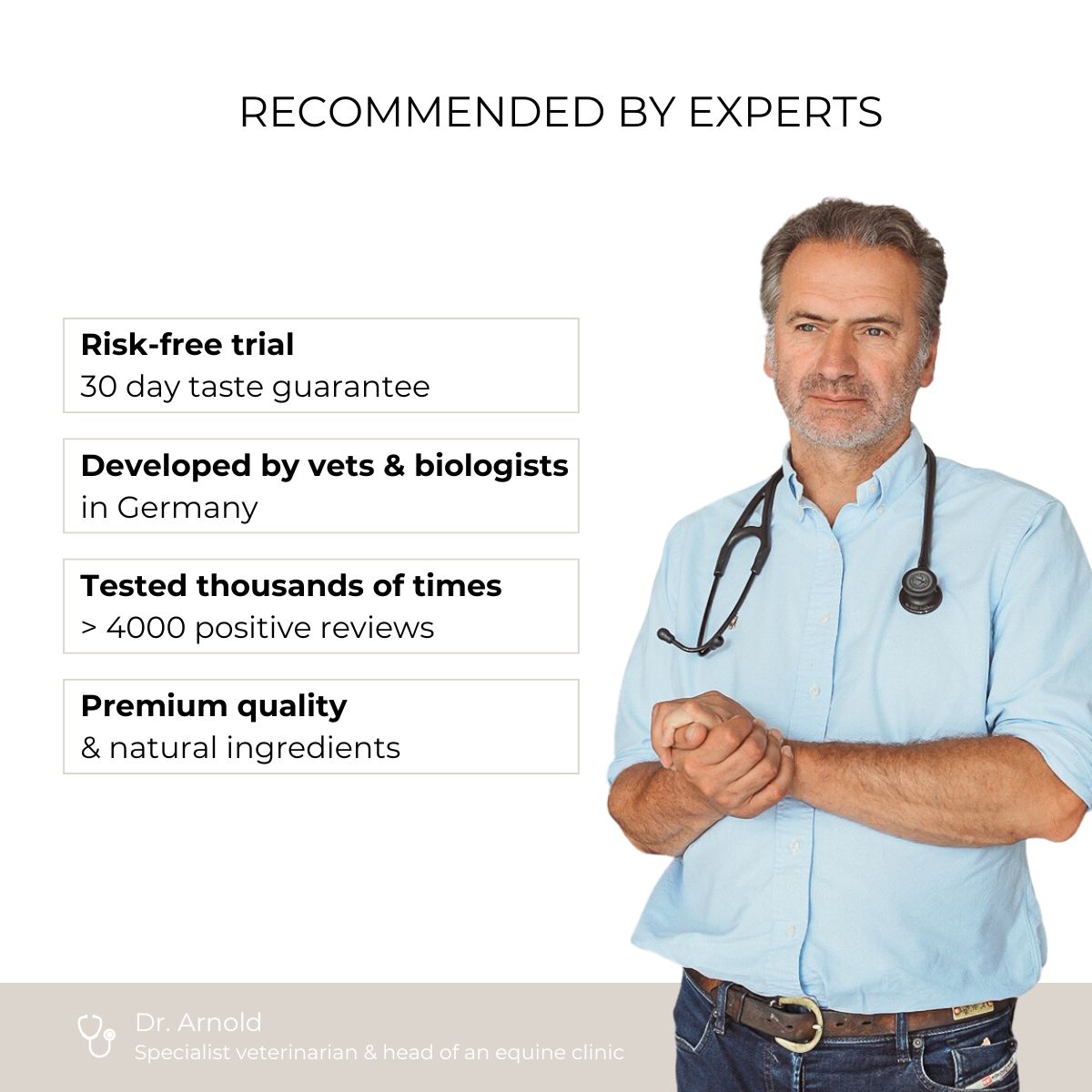
Mineral Liquid
Tax included.
In stock – delivered to your horse within 1–2 days.

Beatrice Mary, Anja Fee & over 40,000 customers love Alpurial products.
✓ For daily supplementation with essential minerals
✓ Contains all key macro and trace elements in one product
✓ Developed to meet the needs of all horse types – from yearlings to seniors
✓ Ideal for leisure and sport horses of any discipline – whether dressage, western, or driving
Choose options






Alpurial Mineral Liquid is a complementary feed for horses that provides targeted support with minerals, electrolytes, and vitamins in liquid form. Its carefully balanced composition contributes to a consistent daily intake of nutrients – regardless of the horse’s age, season, or level of activity.
The liquid format allows for easy and even integration into the daily feed. The formula is designed to offer a broad micronutrient profile with essential macro- and trace elements in a balanced ratio.
Suitable for all types of horses – from young horses to seniors, and from leisure to sport horses.
- Content: 1 liter
- RRP: €59.90 per liter
- show safe
Daily amount for large horses
30 ml
Daily amount for small horses/ponies
10 ml
Feeding duration per bottle
10ml = 100 days
30ml = 33 days
Expert recommendation
Continuous feeding recommended.
Liquid supplements can be added to any type of feed and are generally better accepted by most horses than powders or pellets.
Feeding is that easy:
1. Shake the bottle and measure the dose
2. Distribute evenly over the feed
3. Feed your horse and see how much they enjoy it
Supplementary feed for horses
Ingredients:
Sodium chloride, linseed oil, propylene glycol
Analytical constituents:
Crude protein 3.50%; crude oils and fats 5.40%; crude fibre 0.00%; crude ash 3.50%; moisture 83.70%; sodium 1.08%
Additives per liter:
Nutritional additives:
Vitamin B1 (3a820) 400 mg; Vitamin B2 (3a826) 300 mg; Vitamin B6 (3a831) 300 mg; Vitamin B12 as cyanocobalamin 2,000 mcg; Vitamin C (3a300) 2,000 mg; Vitamin D3 (3a671) 30,000 IU; Vitamin E (3a700) 3,000 mg; Beta carotene (3a160a) 50 mg; Niacinamide (3a315) 1,000 mg; Folic acid (3a316) 20 mg; Calcium – D – Pantothenate (3a841) 1,000 mg; Biotin (3a880) 20,000 mcg; Choline chloride (3a890) 1,000 mg; Iron as iron-II glycine chelate hydrate (3b108) 2,000 mg; Iodine as potassium iodide (3b201) 27 mg; Copper as copper-II glycine chelate hydrate (solid) (3b413) 450 mg; Manganese as glycine manganese chelate hydrate (3b506) 2,000 mg; Zinc as zinc glycine chelate hydrate (solid) (3b607) 2,200 mg; Selenium as sodium selenite (3b801) 9 mg
Technological additives:
Potassium sorbate (E202) 2,000 mg; Sodium propionate (E281) 2,000 mg; Citric acid (E330) 1,000 mg; Xanthan gum (E415); Glycerol polyethylene glycol ricinoleate (E484)
📦 Free & fast shipping from 39€
🐴 Horse doesn't like it? Money-back guarantee!
🤝 Fair prices guaranteed.
Ingredients
Know what's inside: We use highly concentrated ingredients to minimize the daily feeding amount. This makes your product last longer.
Sodium chloride provides the electrolytes sodium and chloride, which are involved in maintaining fluid balance and osmotic equilibrium in the body. Targeted supplementation may be useful in situations with increased nutritional demands, such as heavy sweating, physical exertion, or stress.
Vitamin E is a fat-soluble vitamin with antioxidant properties. It is often included in feeding concepts for senior horses or horses under increased physical demands, especially in combination with muscle- and energy-appropriate diets.
Vitamin B1 (thiamine) is a water-soluble B-vitamin naturally found in grains, yeasts, and herbs. It is commonly used in supplementary feed to support the daily ration during periods of higher nutritional needs – such as intensive work or special feeding situations.
Vitamin B2 (riboflavin) is a water-soluble B-vitamin that naturally occurs in yeast, grains, and green plants. It is traditionally used in equine nutrition as part of a balanced ration to ensure an adequate supply of this micronutrient – particularly in periods of increased nutritional demands or when liver function is limited.
Vitamin B6 (pyridoxine) is a water-soluble B-vitamin naturally found in yeast, grains, and plant-based feed materials. It is included in equine feed formulations that aim to provide a balanced intake of nutrients that may be relevant for protein and fat metabolism, as well as general ration planning.
Vitamin B12 (cobalamin) is an essential B-vitamin found primarily in animal-based feed ingredients such as fermented products or brewer’s yeast. It is included in horse feed concepts designed to support the overall supply of key micronutrients – especially in older horses or during periods of increased demand.
Vitamin C is a water-soluble vitamin that is used in equine feeding to support the nutritional management of the immune system. It is involved in physiological processes related to connective tissue and is often included in rations aimed at maintaining a balanced nutrient supply. A consistent intake may be particularly useful during periods of increased physical demand.
Vitamin D3 is a fat-soluble vitamin used in equine nutrition to support calcium and phosphorus intake. It is particularly relevant for horses with limited exposure to sunlight or during periods of increased physical demands.
Beta-carotene is a natural precursor of vitamin A and is found especially in fresh grass and carrots. In equine feeding, it is often included in nutritional concepts designed for breeding horses or horses with elevated nutritional needs, such as during demanding phases.
Niacinamide (Vitamin B3) is an essential B-vitamin naturally found in plant-based feedstuffs, yeast, and grains. It is commonly included in equine rations as part of a comprehensive supply of micronutrients that may play a role in supporting overall nutritional balance.
Folic acid (Vitamin B9) is an essential B-vitamin that horses cannot produce themselves and must therefore obtain through feed. It is commonly included in equine nutrition to ensure an adequate supply as part of a balanced diet – especially for older horses or those with increased nutritional requirements.
Calcium is a macroelement found throughout the body, particularly in the skeleton. It is a structural component in bones and teeth and plays a role in general cellular functions. A balanced calcium supply is considered relevant in feeding concepts for young, senior, or sport horses.
Biotin plays a role in the normal metabolism of skin, coat, and hooves. It is involved in the formation of keratin – a natural structural protein found in skin, hair, and horn.
Choline chloride is a bioavailable source of choline – a vitamin-like compound involved in various physiological functions in the body. It is commonly included in equine nutrition concepts that aim to support fat metabolism and provide nutritional support for liver and nervous system functions.
Iron is an essential trace element and part of important protein compounds in the body, such as hemoglobin. In equine feeding, it is used in formulations that support a species-appropriate intake of iron – especially in periods of increased physical effort or in response to feeding-related needs.
Iodine is an essential trace element that contributes to species-appropriate feeding concepts with a focus on micronutrient balance. It is often used in rations for horses during times of increased physiological demand, such as seasonal coat change or in breeding horses.
Copper is an essential trace element involved in numerous physiological processes in the body, including those related to connective tissue, the nervous system, and blood metabolism. It is included in feeding concepts for horses to support the overall micronutrient supply, particularly during periods of increased physical effort.
Manganese is an essential trace element and a component of various enzymes. It plays a role in equine nutrition strategies that address the nutritional needs of the musculoskeletal system – especially for horses under physical strain or in training.
Zinc is an important trace element associated with cell metabolism. It is often used in feeding concepts that aim to support the nutritional needs related to skin, coat, and hoof quality.
Selenium is an essential trace element that plays a role in various metabolic functions. In equine feeding, selenium is used as part of balanced formulations for horses with increased nutritional requirements – such as during training or periods of physical stress.








Frequently Asked Questions
about Mineral Liquid
For large horses, one bottle will last for about 1 month, and for small horses/ponies, even 3 months.
Since Mineral Liquid contributes to basic nutritional support, continuous feeding is recommended.
All our products can be prepared in advance for feeding. We recommend a maximum preparation time of 24 hours.
Supplementary feed for horses
30 ml/day for large horses
10 ml/day for small horses/ponies
No worries – 99% of horses eat the Mineral Liquid without any problems when mixed with concentrate feed. You can also prepare it in mash. And if your horse doesn’t like it, our 30-day Taste Guarantee ensures you’ll get your money back.
There are no restrictions for Mineral Liquid. It can be used for all horses of all ages.
The Mineral Liquid can be fed to pregnant mares.
The Mineral Liquid is show safe, meaning it is not doping-relevant.
Shelf life
The ordered products have a minimum shelf life of 6-12 months.
Feed quickly and easily
compatible with
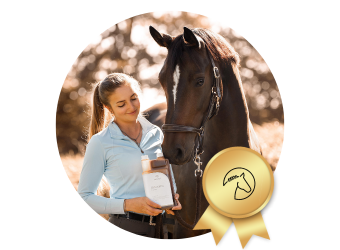
Taste guarantee
30-day money-back guarantee! All information about the guarantee can be found in the terms and conditions.
